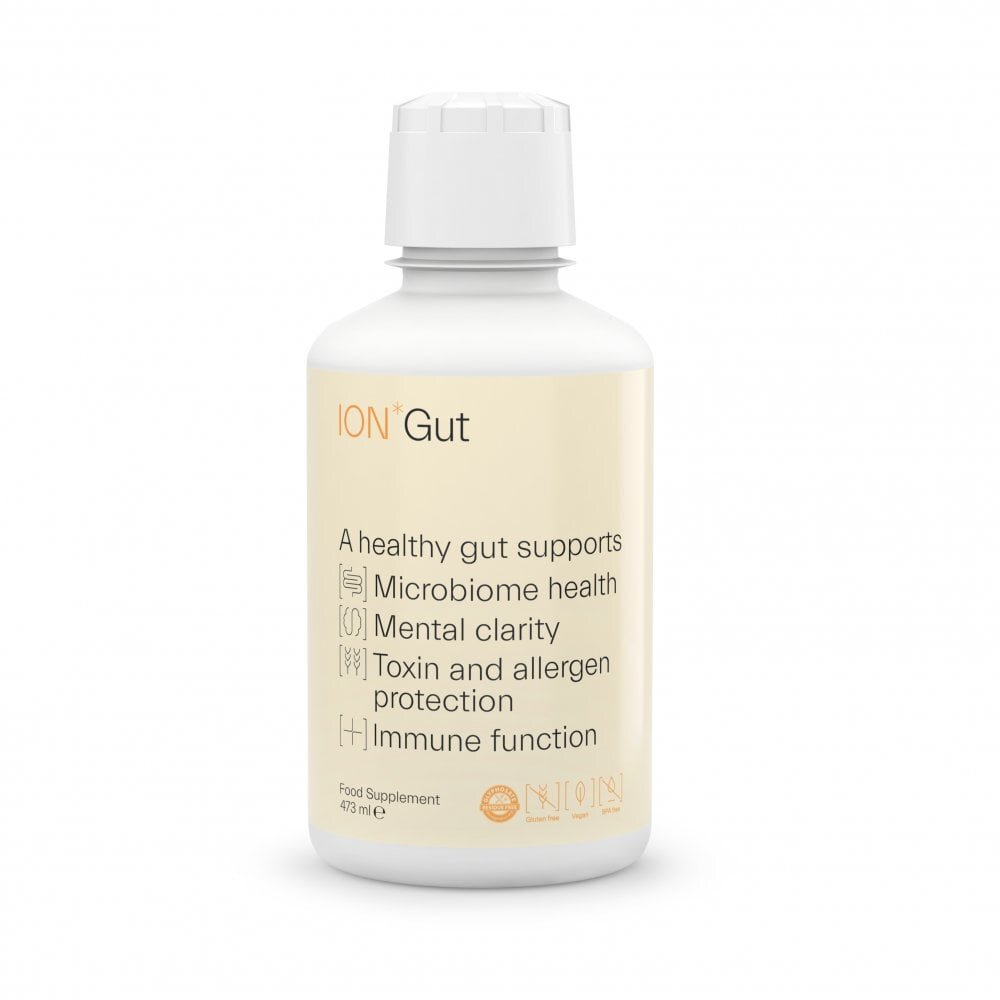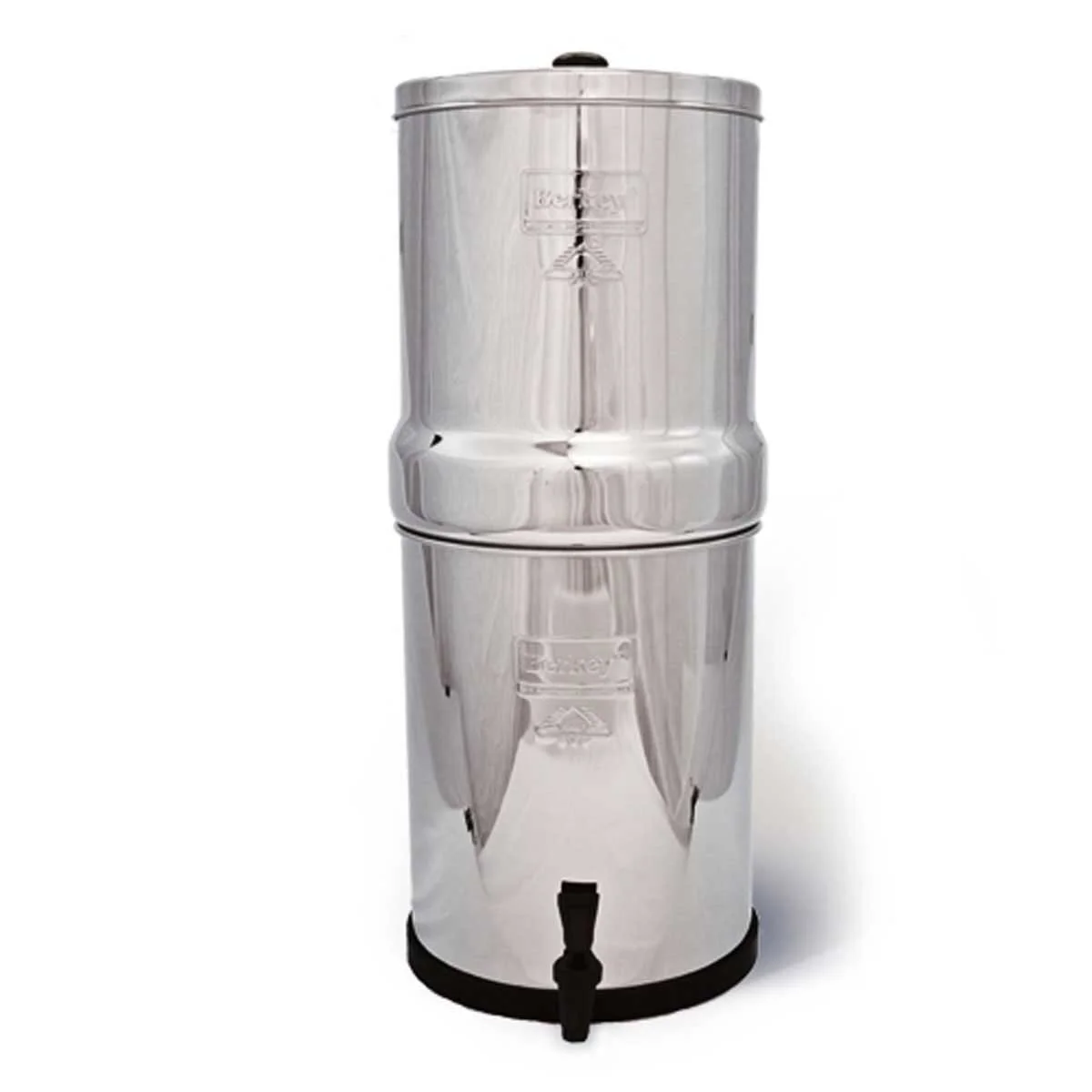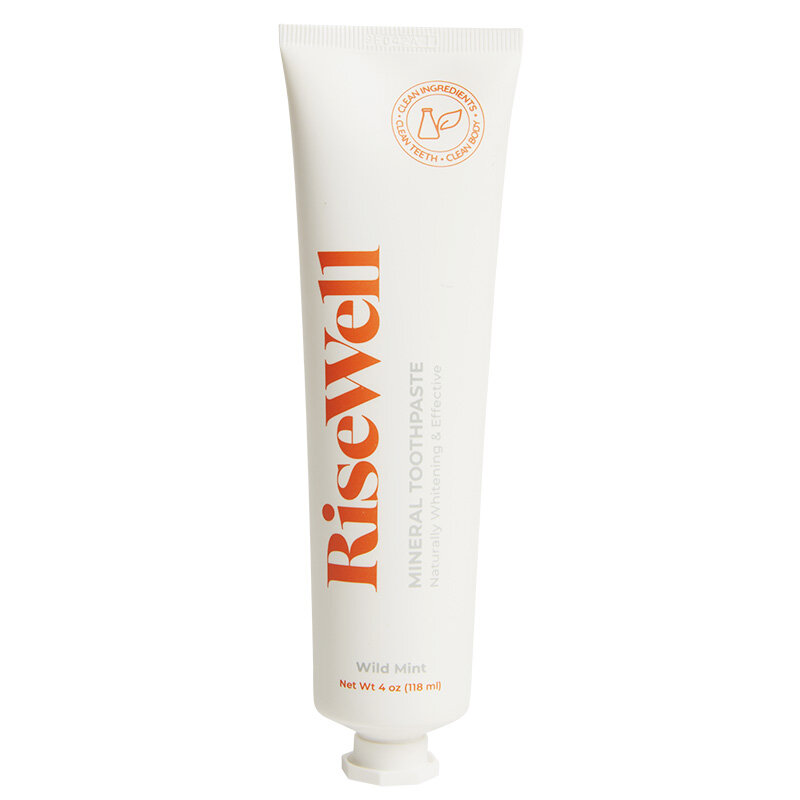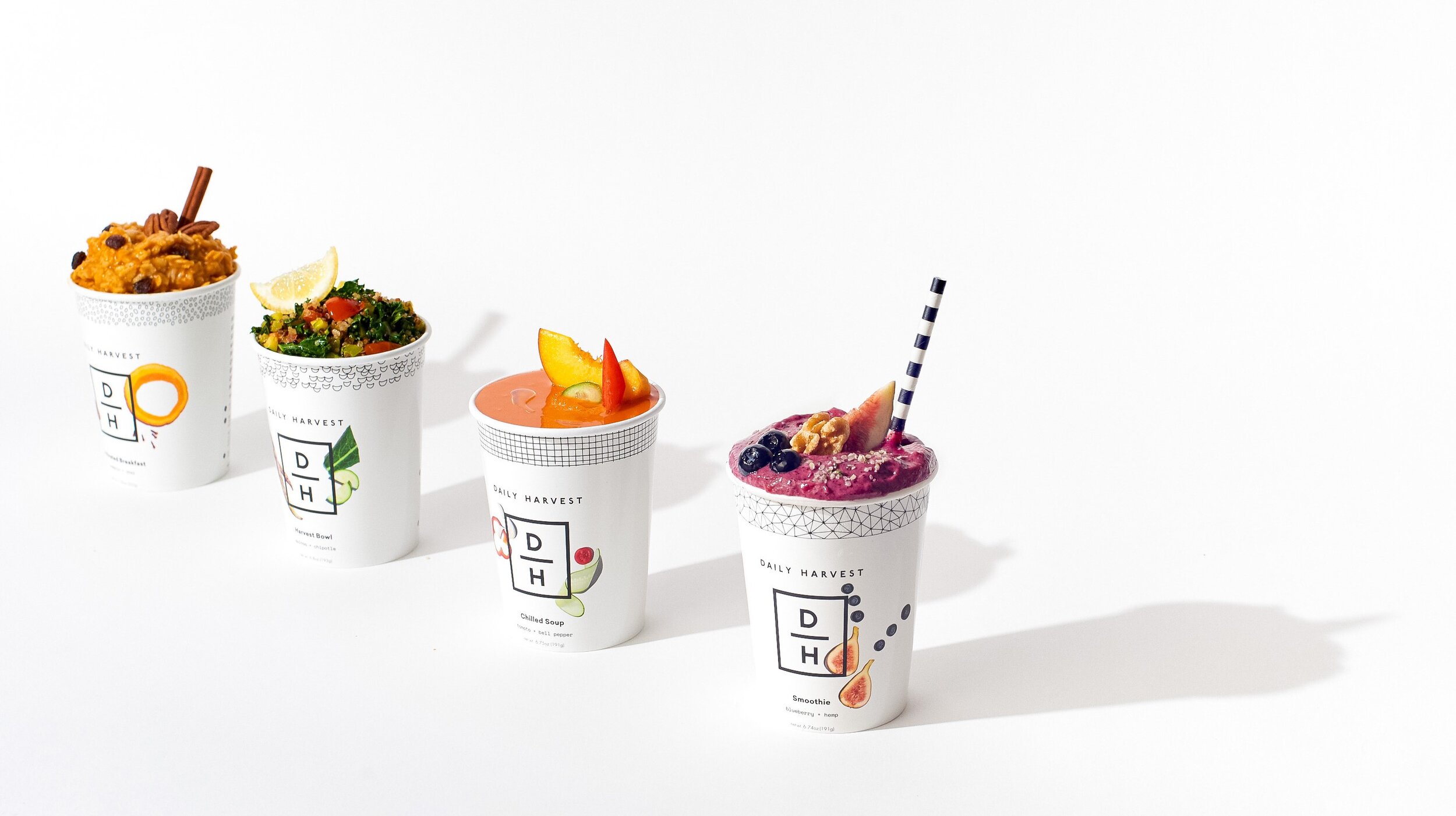16 Tips to Improve Gut Health
Gut health has earned its right to move from beyond being a buzzword to being a critical topic in human health.
If you’re not familiar with gut health, start with this post where I briefly explain what it is, how it works, how it impacts our health, and why it’s important to understand if you have kids.
In short, gut health refers to the balance of microorganisms that live in the digestive tract. Looking after the health of the gut and maintaining the right balance of these microorganisms is vital for physical and mental health, immunity, and more.
By making certain lifestyle changes, we can actually alter the diversity and number of microbes in our gut for the better.
If you’re ready to improve your gut health, read on for these 16 tips, but as always, seeking professional support and testing is recommended to target specific issues and find the most success!
1) Reduce stress
Managing stress is important for many aspects of health, including gut health. Stress is one of the world’s largest health problems, leading to exhaustion, burnout, anxiety, a weak immune system, and even organ damage. Studies have suggested that psychological stressors can disrupt the microorganisms in the intestines, even if the stress is only short-lived. (source; source; source)
In humans, a variety of stressors can negatively affect gut health, including:
psychological stress
environmental stress
sleep deprivation
disruption of the circadian rhythm
Some stress management techniques include meditation, deep breathing exercises, and progressive muscle relaxation. Exercising regularly, sleeping well, and eating a healthy diet can also reduce stress levels.
Several scientific studies have found that individuals with a healthy gut microbiome have decreased levels of stress, anxiety, and depression and have a generally more positive outlook compared to individuals with altered gut bacteria populations. More recent research is suggesting that our gut microbiome can also play a role in reducing chronic inflammation, regulating glucose and insulin balance, and might even improve cognitive scores in people with dementia. (source; source)
2) Avoid Glyphosate when possible
Glyphosate is the active ingredient in the most commonly used weed killers, including Roundup. These weed killers, used broadly in agriculture, work by inhibiting the enzyme EPSPS. This blocks essential amino acids in our food that we need.
As Dr. Zach Bush says about Roundup, “We are deleting the medicine out of our food.”
The USA uses a staggering 4.5 billion pounds of glyphosate every year. Glyphosate can enter the body by direct absorption through the skin, by eating foods treated with glyphosate, or by drinking water contaminated with glyphosate. Reports show that this high usage has led to significant levels of this herbicide in our water, air, rainfall, and even human breast milk – yikes!
The World Health Organization classified glyphosate as a "probable human carcinogen", and it is implicated in a wide variety of human health disorders.
Recent studies:
Show high correlations between glyphosate usage and numerous chronic illnesses. (Correlations are not causations, yet they raise concern over the use of a chemical to which all life on earth appears to be exposed.)
In a Washington State University study, researchers found a variety of diseases and other health problems in the second- and third-generation offspring of rats exposed to glyphosate. In the first study of its kind, the researchers saw descendants of exposed rats developing prostate, kidney and ovarian diseases, obesity and birth abnormalities.
Indicate that glyphosate disrupts the microbiome in the intestine, causing a decrease in the ratio of beneficial to harmful bacteria. Current research indicates that disruption of the microbiome could cause diseases such as Metabolic Disorder, Diabetes, depression, Autism, cardiovascular disease, and autoimmune disease.
In fact, some research shows that glyphosate is ten times more potent than gluten in its ability to degrade tight junctions in the gut lining. (source)
One of my favorite supplements, ION* Biome, functions to reduce glyphosate’s impact by improving the gut lining's ability to keep out this detrimental element, and by promoting increases in the production of beneficial enzymes. ION* Biome promotes a healthy "firewall" in the gut and blood-brain barrier, to support a beneficial shift in the gut ecosystem as well as normal immune function. I highly recommend this supplement as one of the best for overall gut health!
3) Eat slowly while sitting down
Take deep breaths and practice gratitude before eating to stimulate the vagus nerve, which forms a major part of the parasympathetic (the rest and digest) nervous system and helps initiate the digestive process. The idea is to breathe out for a few seconds longer than you breathe in.
There should also be a 4-5 hour window between full meals. This enables the gut to fully digest your food and gives it time to rest for the next meal. It’s hard work turning food into fuel!
4) Eat organic when possible
Research has found organic fruits and vegetables contain significantly more diverse bacteria (yay, healthy microbiome!) and are even higher in nutrients. (source; source)
Need some tips for eating organic on a budget?
Shop at Thrive Market: My family has relied on Thrive Market since 2016 for all of our non-perishable items. It’s proven to be the cheapest way for us to support the brands we love thanks to wholesale prices delivered right to our house. Everything is non GMO. They are committed to regenerative farming practices, organic standards, and fair trade. Enjoy 40% off your first order!
If you’re not able to purchase all organic produce, a great place to start is with the Clean 15 and Dirty Dozen lists from the Environmental Working Group.
Some of my favorite foodies for meal inspiration are The Defined Dish, Fed & Fit, and Against All Grain Meals Made Simple
5) Drink plenty of water
Increased water intake aids in breaking down food and moving it smoothly through the intestines. Staying hydrated also flushes toxins and waste more easily out of the digestive system and prevents constipation.
How much water you need depends on a lot of things and varies from person to person. For adults, the general recommendation from The U.S. National Academies of Sciences, Engineering, and Medicine is about:
11.5 cups (2.7 liters) a day for women
15.5 cups (3.7 liters) a day for men
This includes fluids from water, beverages like teas and juice, and from food. You get an average of 20 percent of your water from the foods you eat. (source)
Chemicals in tap water, such as chlorine, bromine, and water treatment are antibiotics harming our microbiome diversity. Drinking out of plastic can be contaminate water with phthalates. Choose clean, filtered water and swap your plastic water bottles for stainless steel or glass.
Need a water filter? I love my Berkey filter - you can read all about it here.
6) Limit processed foods
Some research shows that countries where processed foods are more prevalent tend to have higher rates of diseases which are associated with a decreased level of gut microbiome diversity – whereas in regions where individuals live subsistence lifestyles and consume very little processed food, gut microbiome diversity is much greater. (source)
Because processed foods are filled with GMOs, preservatives, unhealthy fats, and added sugar, these ingredients can act like a fertilizer for bad bacteria and yeast. They may also signal an immune response, causing the release of powerful antibodies meant to fight invaders and damage the body’s cells.
Essentially, eating ultra-processed foods provides the perfect environment for bad gut bacteria to thrive and cause inflammation, so do your best to limit these foods and focus on fresh, whole foods. (source)
7) Limit sugar and avoid artificial sweeteners
Eating a lot of sugar or artificial sweeteners may cause gut dysbiosis, which is an imbalance of gut microbes. Some animal studies suggested that:
The standard Western diet, which is high in sugar and fat, negatively affects the gut microbiome. In turn, this can influence the brain and behavior. (source)
The artificial sweetener aspartame increases the number of some bacterial strains that are linked with metabolic disease. (source) (Metabolic disease refers to a group of conditions that increase the risk of diabetes and heart disease).
Artificial sweeteners can negatively impact blood glucose levels due to their effects on gut flora. This means that artificial sweeteners may increase blood sugar despite not actually being a sugar. (source)
So, toss the Splenda and opt for natural, low-glycemic sweeteners like stevia, monk fruit, or yacon syrup.
8) improve your Oral health
Over 80% of our immunity comes from our gut health, but did you know your oral microbiome influence your gut health?
Dysbiosis (an imbalance of bacteria with symptoms like bad breath, tartar, plaque, cavities and more) in your mouth can lead to dysbiosis in the gut. To learn more about how all of this works, this podcast episode from Organic Olivia is an absolute must.
You might be surprised to learn that most oral health products aren’t controlled by the FDA. This includes toothpaste, mouthwash, and other standard oral care products. How crazy is that?
That’s why Risewell is my family’s favorite toothpaste. It uses natural hydroxyapatite to remineralize teeth instead of fluoride (which is a neurotoxin). They even make a kids version, too! Save 10% with code sunnyseed at checkout.
9) Improve Your Sleep Efficiency
Just like most things, sleep is all about QUALITY over quantity, or ‘sleep efficiency’. Good sleep is actually less about the number of hours you sleep and more about turning your sleep into an extremely restful and rejuvenating time.
Your circadian rhythm is a 24 hour cycle of thousands of signals sent throughout the day, telling your body what to do and when to do it. Recent findings show that your circadian rhythm and your gut microbiome are directly connected. Circadian disruption (like jet lag or shift work) disrupts the rhythm needed to produce a healthy gut microbiome. (source; source)
Another study suggests that both the microbial rhythm of your gut and that of your circadian rhythm greatly influence each other, which may directly affect your quality of sleep. (source)
We’re constantly inundated with factors that contribute to poor sleep like blue light from screens, sitting down for the majority of the day, high stress careers, and not getting enough sunlight are all significant impairments to our sleep. Make sure you’re getting plenty of Vitamin D, getting exercise, working on stress reduction, and wearing blue light-blocking glasses at night.
10) Exercise
In general, exercise increases your microbial diversity.
In one recent study, the researchers established that participants with higher cardiorespiratory fitness also had more diverse bacterial populations in the gut, compared with peers who had low cardiorespiratory fitness. Moreover, the team confirmed that cardiorespiratory fitness was linked with about a quarter of the variance in bacterial species diversity, and that this effect was independent of that produced by an individual’s body fat percentage. (source)
While most of the research points to cardio being beneficial for your gut microbes, remember that if you are working too hard without enough rest, it is going to cause your body stress. If that continues for a prolonged period of time, this can have a negative effect on your gut.
Exercise like yoga or Pilates can help get you out of fight, flight or freeze mode and into rest and digest, which is crucial for keeping your gut happy. Aside from your microbes, exercise also helps with keeping your gut moving.
11) Consider a Grain Free Diet
“Grains inflicts pain and damage on the gut at least four ways: direct inflammation, intestinal permeability (leaky gut), inhibited digestion, and alteration of friendly bacteria.” - Dr. Peter Osborne
All grains contain some form of gluten. Gluten is not a single protein, but a huge family of proteins (over 400) so gluten free is often not enough to heal the gut.
More than 100 medical issues have been researched and documented to be related to gluten, including eczema, psorisis, vitalego, adhd, and autoimmune disease. Research confirms it is possible to be sensitive to gluten without having celiac disease.
Gluten sensitivity and celiac disease are different. Gluten sensitivity is a genetic predisposition, meaning the genes are not bad, but they activate an inflammatory cascade within the body, trigged by grain consumption. Enough inflammation over time contributes to autoimmunity, where your body begins attacking your own tissue.
1 in 7 people have an autoimmune disease, the #1 cause of death in females under 65. Auto-immune disease is also linked to diabetes, heart disease, and even cancer. An autoimmune disease is essentially when our immune system has been traumatized for fighting for decades. Grains are the #1 culprit in autoimmune disease and they also wreck havoc on gut health AND mood.
90% of serotonin - our mood transmitter - is produced in the gut.
To learn more, visit glutenfreesociety.org and read Dr. Peter Osborne’s book, No Grain, No Pain.
12) Get outside in nature
Research in a growing scientific field called ecotherapy has shown a strong connection between time spent in nature and reduced stress, anxiety, and depression (source).
When it comes to gut health, one of the easiest ways to naturally increase your microbial diversity is simply by being around different types of bacteria. Being outside gives you exposure to all sorts of microbes that can benefit your microbiome.
This can be active–like walking, running, or exercising–or more passive, like grounding yourself with your feet on the earth or relaxing in a cozy chair.
Plus, being outside helps ensure you’re getting enough Vitamin D, which is essential for strong immunity Some research suggests that gut bacteria may play a vital role in converting inactive vitamin D into its active, health-promoting form. (source)
13) Eat gut nourishing Foods
Here’s the consensus on what to consider when it comes to foods that nourish your gut:
More diversity: Experts suggest aiming for about 40 different species of plants every week, which may sound like a lot at first, but there are some easy ways to take this advice. For example, a fuji apple and a gala apple count as two different species. I love Daily Harvest smoothies because they include a variety of organic produce and plant-based proteins I wouldn’t normally try. Daily Harvest makes it so easy to give my girls a tasty, healthy snack! I also love Organifi, which offers 11 superfoods to protect your immune system and Includes a full spectrum of vitamins, minerals, and antioxidants (use the code sunnyseed for 20% off!).
Fiber-rich foods: here are some of the top fiber-rich foods
Fruits: pears, raspberries, strawberries, blueberries, blackberries, avocados, bananas, apples, tomatoes
Vegetables: artichokes, spinach, broccoli, sweet potato, beets, brussels sprouts, kale, carrots (Tip: stop peeling carrots - their peels contain rich fiber!)
Legumes and beans: lentils, kidney beans, split peas, black beans, lima beans, edamame (Tip: soak beans to reduce phytic acid and increase absorption of nutrients. Phytic acid blocks zinc, calcium, magnesium, and iron from being absorbed.)
Whole grains: quinoa, oats (not instant oats)
Nuts and seeds: chia seeds, cashews, almonds, pecansA note on eating meat: I respect any family’s informed decision, so if you feel great on a vegan diet, you do you! I also deeply care about animals and the environment so I was a vegetarian for 2 years, but it did not work well for my health. After continuing to learn more about healing my gut and regenerative farming, I feel most healthy when eating a pegan diet (paleo + vegan). For more on this, read Food Fix by Dr. Mark Hyman
Polyphenols: Polyphenols keep our microbiome healthy and robust. Here’s how to increase your polyphenols intake:
Coffee in its purest state contains polyphenols that trigger beneficial DNA functions. Conversely, too much caffeine can damage the gut, so limit caffeine intake, but gladly enjoy a delicious cup of organic coffee. (Coffee is one of the most heavily sprayed crops, so try to opt for organic.) I recommend Kion coffee or Purity coffee (save with code sunnyseed at checkout with both of these brands!).
Fruits: pomegranates, citrus fruits, grapes, melons. I love Organifi red juice.
Vegetables: kale, asparagus, bell peppers, zucchini, beets, butternut squash
Whole grains: brown rice
Nuts and seeds: brazil, cashews, pecans, macadamia, pistachios, walnuts, hemp seeds, flax seeds
Wine: swap out conventional wine filled with junk for the biodynamic and organic wines from Dry Farm Wines. Their wines are sugar-free, have no or low sulfites, more polyphenols and antioxidants, and no additives. Try Dry Farm Wines today and get a bottle for just a PENNY in your first box!
Fermented Foods: Kimchi, sauerkraut, tempeh, miso, pickles
Bone Broth: Organic Bone Broth is rich in alkylglycerols, which are vital for the production of white blood cells. I try to make lots of soups and encourage my girls to sip right from the bowl. Try Bonafide Provisions, Fond, or make your own (other brands are loaded with preservatives and stabilizers.)
Organic, grass-fed, pasture-raised, wild-caught, ethically sourced animal protein.
We’ve been ordering our protein and wild-caught salmon from Wild Pastures ever since we learned of the profound impact pasture-raised animals and regenerative farming have on our world, especially our children’s generation. You can save 20% on your first box of Wild Pasture with this link.
100% grass-fed beef: Look for beef that is 100% grass-fed vs. grain-fed (grass-fed contains more antioxidants, omega-3’s, CLAs, trace minerals, and vitamins than any other food, including conventional meat (source; source), and results in less antibiotic-resistant bacteria in our bodies compared to conventional meat). I prioritize grass-fed beef over organic because organic beef does not mean grass-fed; it means it was fed a diet of organic grain feed. Grass is what nature intended cattle to eat and it appears to be the healthiest thing possible for the cows, so if you can get organic + 100% grass-fed, then great, but this is really hard to find. ButcherBox’s beef is always 100% grass-fed and finished.
Wild-caught seafood: Wild-caught fish is higher in Omega-3s, lower in saturated fat, has no pesticides, and is less likely to have contaminants compared to farm-raised fish. ButcherBox has wild-caught salmon, scallops, cod, halibut, and lobster.
Pasture-raised eggs: egg yolks from hens raised on pasture have a more favorable omega-6 to omega-3 fatty acid ratio, which is considered beneficial for health (source; source). Not to mention, these chickens are free to roam around outdoors with unlimited access to food, fresh water, and indoor shelter in case of inclement weather, compared to the vast majority (90%) of laying hens in the USA which are sadly confined in small cages for their entire lives.
Supporting Local: When looking for a quality, biodynamic, pasteur-raised farm, you should see diversified life, diversified landscape, carbon economy, hydration, pasture (green, mosaic pattern), contentment (both animals and workers), transparency, and access. What farmers do is sacred, noble, and important. Yet, the government does NOT make it easy for them to follow practices that are better for our health and the environment. Support local when possible. I highly recommend watching the documentary Kiss the Ground
A note on eating meat: I respect any family’s informed decision, so if you feel great on a vegan diet, you do you! I also deeply care about animals and the environment so I was a vegetarian for 2+ years, but it did not work well for my health. After continuing to learn more about healing my gut and regenerative farming, I feel most healthy when eating a real food, paleo based diet. For more on this, read Food Fix by Dr. Mark Hyman
14) Reduce antibiotic use when possible
Although it is often necessary to take antibiotics to combat bacterial infections, overuse can lead to antibiotic resistance and cause damage to the gut microbiota and immunity. (source) Some research reports that even 6 months after their use, the gut still lacks several species of beneficial bacteria. (source)
Sometimes, antibiotic use is prescribed unnecessarily, so be sure to discuss antibiotics and alternative options with your doctor.
15) Use non-toxic cleaning products (and don’t clean too often!)
With an overly sterilized environment, we kill not just the bad but ALSO the good bacteria.
Just as antibiotics can disrupt the gut microbiota, so too can disinfectant cleaning products, according to the results of one study that analyzed the gut flora of over 700 infants ages 3–4 months. (source) The researchers found that those who lived in homes where people used disinfectant cleaning products at least weekly were twice as likely to have higher levels of Lachnospiraceae gut microbes, a type associated with type 2 diabetes and obesity.
Studies have suggested that early-life exposure to microbes (i.e. germs) is an important determinant of adulthood sensitivity to allergic and autoimmune diseases, including hay fever, asthma, Irritable Bowel Syndrome (IBS), Leaky Gut, Celiac Disease, Depression, ADHD and a whole lot more. (source; source)
My favorite natural cleaning products are Branch Basics - check out their multi-purpose cleaning concentrates, and save with code sunnyseed at checkout!
For more information on this topic of good bacteria–especially if you’re interested in Leaky Gut–check out the book Eat Dirt by Dr. Josh Axe. He talks about why it’s essential to get a little “dirty” in our daily lives in order to support our gut bacteria and prevent Leaky Gut Syndrome and other digestive disorders.
16) Be Selective About Oils
Oil is highly processed, can be extracted with chemical solvents, bleached, then deodorized. The top genetically modified oils are soybean, canola, corn. Refined oils like sunflower, soybean,
corn, safflower can also be dominant in omega 6 fatty acids. Too much Omega 6 can cause inflammation in the body. Plus, many oils on the grocery store shelves are rancid or not pure, including olive oil and avocado oil which are “healthier” options. It’s so frustrating!
Avoid: canola, corn, sunflower, vegetable, palm, safflower, cottonseed, and soybean oil
Choose: grass-fed, pasture raised butter, olive oil, avocado, ghee (occasionally), or coconut oil (occasionally)
Kirkland Organic
Corto EVOO
Cobram Estate
California Olive Ranch
Ellora Extra Virgin Olive Oil
Partanna Extra Virgin Olive Oil
Lodi Frantoio Extra Virgin Olive Oil
TERRA Delyssa
Marianne’s
Chose Foods
Bonus: Avoid smoking
We know that smoking affects the heart and lungs, but if you need one more reason to quit, it turns out that smoking also affects gut health. A 2018 review of research published over a 16-year period found that smoking alters the intestinal flora by increasing potentially harmful microorganisms and decreasing the levels of beneficial ones. These effects may increase the risk of intestinal and systemic conditions, such as inflammatory bowel disease (IBD). (source)
Disclaimer: This post includes affiliate links, and at no additional cost to you, I will earn a small commission if you purchase through these links. Please note that I've linked to these products purely because I recommend them wholeheartedly and they are from companies I use and trust.
I am not a doctor and this information should not be considered personalized medical advice. Only you are responsible for your own health.















